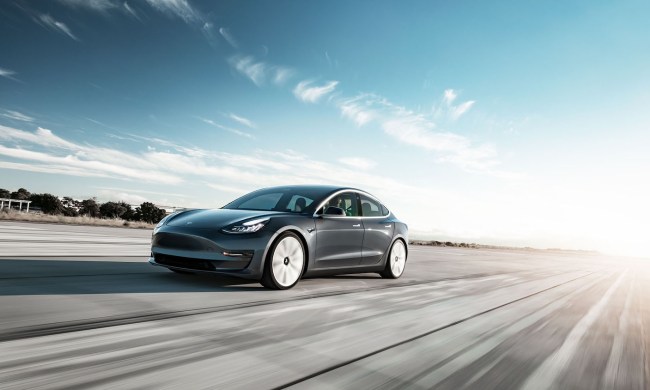
With so many different companies working on self-driving car technology, it’s not uncommon for companies to hit upon similar developments at around the same time. But Intel and subsidiary Mobileye believe a recent development made by Nvidia is just a little too similar to their own to be a coincidence.
In a blog post titled “Innovation Requires Originality,” Intel senior vice president and Mobileye president and CEO Amnon Shashua takes aim at a recent Nvidia proposal called “Safety Force Field” (SFF). While the company called it a “first-of-its-kind” safety model for autonomous vehicles, Intel wasn’t so convinced. That’s primarily because, according to Shashua, the system bore quite the resemblance to Mobileye’s own development in its “Responsibility Sensitive Safety”(RSS) paper. The only problem: Mobileye’s paper was published nearly two years earlier, in 2017.
To understand Shashua’s case against Nvidia, it’s probably best to let him speak for himself. In a blog post, he wrote:
“If imitation is the sincerest form of flattery, then Nvidia must think very highly of us. Based on the information that has been made available, it is clear Nvidia’s leaders have continued their pattern of imitation as their so-called “first-of-its-kind” safety concept is a close replica of the RSS model we published nearly two years ago. In our opinion, SFF is simply an inferior version of RSS dressed in green and black. To the extent there is any innovation there, it appears to be primarily of the linguistic variety.”
It’s worth noting that when Mobileye published the RSS paper in 2017, it invited other companies to adopt the system and collaborate on the project. The idea behind that invitation is that the more companies that adopt it, the easier it will be to create a singular system for everyone to build off of rather than have a bunch of disparate systems that can’t communicate with one another.
For a period time, Nvidia was involved in talks to potentially collaborate on RSS. Then in 2018, it pulled out of those communications. A year later, it released its own system that, if you ask Intel and Mobileye, is nearly identical to RSS with no mention of it. It doesn’t appear the companies are taking any legal action over the issue, but they are certainly airing some dirty laundry.



